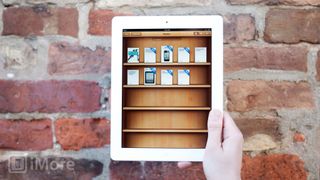Apple and publishers reportedly willing to abandon iBooks "agency model" to appease Justice Department

Under the traditional book-selling model, retailers like B&N, Amazon, and others could get 50% or more of the revenue from the sale of a book. Under Apple's "agency model", they get 30%. The traditional model is retailer-centric. Apple's model is publisher-centric.
This upsets the US Justice Department. Under the old model, the retailer set the price and so could sell the book at any price they wanted, even at a loss. Under Apple's model, the publisher sets the price, so there's no retailer discount. What's more, part of Apple's deal is a "most favored nations" clause that means publishers can't sell to competitors for less than they could sell to Apple, thus making deep discounts for consumers pretty much impossible.
According to Reuters, however, this may be about to change.
The Justice Department could reach a settlement in the next few weeks with Apple Inc (AAPL.O) and some of the major publishers suspected of colluding to push up electronic book prices, according to two people close to the negotiations.While negotiations are still fluid, the settlement is expected to eliminate Apple's so-called "most favored nation" status, which had prevented the publishers from selling lower-priced e-books through rival retailers such as Amazon.com Inc (AMZN.O) or Barnes & Noble Inc (BKS.N), the people said.
Publishers like Apple's model because they made more money but more importantly, they felt deep discounts devalued their books. Just like the App Store has lowered the price of software, they fear eBooks will lower the price of books. (TV executives fear low priced digital access will lower the value of video as well.) Once prices go down, it's very hard if not impossible to bring them back up.
Typically, however, the market decides the value of content. If it gets too low, creators go out of business (or switch businesses), quality suffers, customers stop buying, and the market crashes. Then supply diminishes, and prices rise again (often with new players involved, and/or new models).
Right now Apple uses the 30/70 model for the App Store, iBookstore, and subscriptions in Newstand. (I'm not sure if they use it for iTunes music, movies, or TV shows.) If the iBookstore changes, it will be interesting to see if and how Apple's ecosystem as a whole changes with it.
Master your iPhone in minutes
iMore offers spot-on advice and guidance from our team of experts, with decades of Apple device experience to lean on. Learn more with iMore!

Rene Ritchie is one of the most respected Apple analysts in the business, reaching a combined audience of over 40 million readers a month. His YouTube channel, Vector, has over 90 thousand subscribers and 14 million views and his podcasts, including Debug, have been downloaded over 20 million times. He also regularly co-hosts MacBreak Weekly for the TWiT network and co-hosted CES Live! and Talk Mobile. Based in Montreal, Rene is a former director of product marketing, web developer, and graphic designer. He's authored several books and appeared on numerous television and radio segments to discuss Apple and the technology industry. When not working, he likes to cook, grapple, and spend time with his friends and family.
Most Popular



